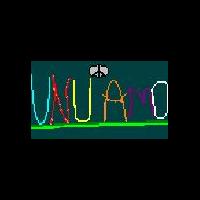Fastest Way to Achieve Fluency in Esperanto?
ya jsewell94, 21 Julai 2009
Ujumbe: 54
Lugha: English
mnlg (Wasifu wa mtumiaji) 27 Julai 2009 7:54:40 alasiri
jchthys:More work by Claude Piron:Much better sources. Thank you.
Greyshades (Wasifu wa mtumiaji) 3 Agosti 2009 7:36:38 asubuhi

jsewell94 (Wasifu wa mtumiaji) 4 Agosti 2009 1:29:23 asubuhi
Yeah, my dad keeps making more comments about 'wasting my time'...And I told him 'Well, working on your car is no more productive than learning another language' (Because he lovvvess cars.). And he said 'That's definitely not true at all..'. It was really stupid.
And apparently some guy who has traveled around Europe and stuff said that "English is going to be the next Universal Language because it's 'everywhere'..."
That's sorta been why I have been so discouraged.
ceigered (Wasifu wa mtumiaji) 4 Agosti 2009 1:54:55 asubuhi

And you never know - some of us homoj who you talk to here might be politicians or business men/women when you've become the president of a large multinational corporation, and Esperanto could be setting up a good network of contacts for your future

Or some of us could just end up becoming bums. I wouldn't give that possibility to your dad though

English is indeed everywhere, and it is indeed the international language at the moment. However, this is the current situation, not the future situation. See, there is something that people tend to forget about - Latin. Latin used to be just as widely used, but now, what do people in ex-roman nations speak? A whole bunch of new languages. The same thing will happen to English, and not even international communication can stop that. In about a century or 3, I reckon at this rate Australians and Americans won't be able to understand eachother with ease (I already find it hard outside of television and cinema).
What will most likely happen is that we'll end up with a Vulgar North American English (VNAE), Vulgar Southern Hemisphere English (VSHE) and.. European English (EE), or something like that. Of course it depends on immigration, cultural pressures (e.g. in Aus we have heaps of US and UK television), all sorts of things.
And to further argue my case if you don't believe my vulgurisation theory - dontche think tha woz pri'ee gewd yakka wiv aww the acronims?

basically, my point is that Esperanto brings us together in the future, not necessarily now. And even if EO is kicked off by LFN or some easier creole type lingo, we've at least made good mates, learnt more about the world and contributed our part to international understanding and harmony.


